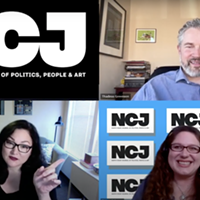[
{
"name": "Top Stories Video Pair",
"insertPoint": "7",
"component": "17087298",
"parentWrapperClass": "fdn-ads-inline-content-block",
"requiredCountToDisplay": "1"
}
]
New Census data recently confirmed what many advocates saw coming: We squandered one of the greatest achievements in antipoverty policy this nation has ever known.
In one year, we went from a record low poverty rate of 7.8 percent — and child poverty being cut nearly in half to 5.2 percent — to the largest ever single-year rise and the child poverty rate increasing by a stunning 138 percent. In California the poverty rate for children under age 18 rose from 7.5 percent to nearly 17 percent.
This increase in hardship directly resulted from not renewing the expanded Child Tax Credit, or CTC, as inflation struck, making clear that poverty is indeed a policy choice. But this realization is not a new one.
What's needed next is highlighting and changing the false narratives about poor people that continually enable harmful policy decisions. As the leader of an antipoverty organization that spends much of its time traveling the state to listen to people in poverty, I have seen which narratives persist and how they influence policy outcomes.
Chief among these narratives is the belief that people are poor because they are fundamentally flawed and less responsible than other people, an often racially-coded sentiment. Democratic Sen. Joe Manchin of West Virginia could have been the deciding vote to maintain the CTC, but instead opposed it, citing concerns of parents spending the money on drugs. It didn't matter that studies found parents spent the money on necessities, or that welfare recipients have shown a low incidence of drug use.
The false narrative is far more powerful than facts.
Those who oppose antipoverty programs also gain traction by suggesting they foster dependency, or reduce the incentive to work. Indeed Michael Strain, an economist at the American Enterprise Institute, told the New York Times, "Yes, (the CTC) alleviated child poverty, but it didn't really do a whole lot to encourage self-sufficiency."
People receiving aid don't need to be encouraged to be self-sufficient. More than 95 percent of families benefiting from the CTC were either in the workforce, ill or disabled, elderly or had a child under the age of 2. Moreover, the program had no negative impact on work participation, as has been demonstrated time and again with unconditional cash transfers. Further benefits of assistance to children in poverty include long-term health and educational outcomes and boosted earnings as adults, all of which support self-sufficiency.
Finally, there is a belief that poverty is an inevitable phenomenon and therefore spending is wasteful. Yet we just saw our ability to significantly cut poverty during the pandemic. And we know that the costs of child poverty alone are $800 billion to $1.1 trillion annually, making the $100 billion expanded CTC that cut child poverty in half both morally righteous and a shrewd investment.
This is a pivotal moment to change direction and upend these false narratives. Policymakers should spend time in poor communities to learn from people who are the experts on their own lives. People of goodwill should push back on those who shame people in poverty and instead shame those whose decisions actually drive poverty, like Sen. Manchin and every single Republican responsible for doubling the child poverty rate.
We should also return to the urgency we felt during the pandemic to help people in poverty by pushing to restore the expanded CTC, rather than needlessly thrusting 3 million children into poverty.
Most importantly, Californians need to unite in telling a new, fact-based story about people in poverty. It start with this: The vast majority of people living in poverty are like the vast majority of people in every economic class, doing their best each day to care for themselves and their children. Yet they are constantly demeaned and harmed by policy decisions stemming from insidious, false narratives that have been absorbed for generations.
Replacing these narratives won't come easily, but it's the only way to achieve meaningful and sustained policy change.
Devon Gray is the president of End Poverty in California. He previously served as a special advisor to Gov. Gavin Newsom's administration.
This column was initially published at calmatters.com
Latest in Views
Readers also liked…
-
Hope
- Sep 7, 2023
-
California Says No to Privatizing Medicare
- Sep 21, 2023

































